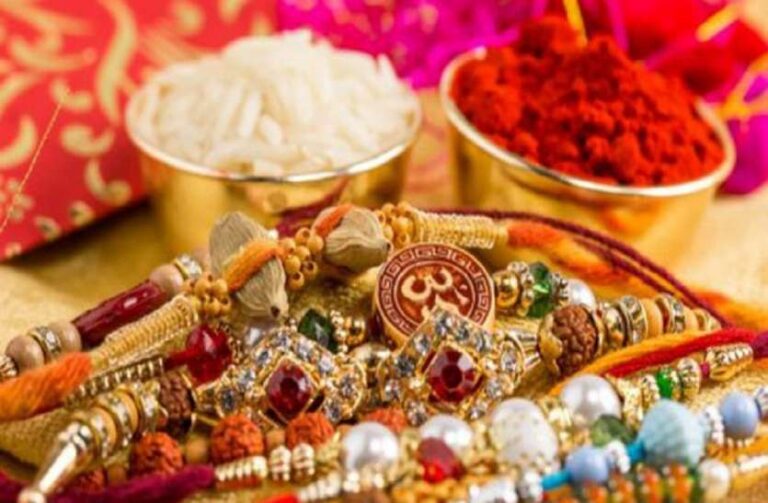
Celebrated on the full-moon day of the Hindu month of Sravana (July/August), this festival celebrates the love of a brother for his sister. On this day, sisters tie rakhi on the wrists of their brothers to protect them against evil influences, and pray for their long life and happiness. They in turn, give a gift which is a promise that they will protect their sisters from any harm. Within these Rakhis reside sacred feelings and well wishes. This festival is mostly celebrated in North India.
The history of Rakshabandhan dates back to Hindu mythology. As per Hindu mythology, in Mahabharata, the great Indian epic, Draupadi, wife of the Pandavas had torn the corner of her sari to prevent Lord Krishna’s wrist from bleeding (he had inadvertently hurt himself). Thus, a bond, that of brother and sister developed between them, and he promised to protect her.
It is also a great sacred verse of unity, acting as a symbol of life’s advancement and a leading messenger of togetherness. Raksha means protection, and in some places in medieval India, where women felt unsafe, they tie Rakhi on the wrist of men, regarding them as brothers. In this way, Rakhi strengthens the bond of love between brothers and sisters, and revives the emotional bonding. Brahmins change their sacred thread (janoi) on this day, and dedicate themselves once again to the study of the scriptures.
Traditionally the ritual involves siblings coming together in celebration, with the sister applying tilak to the bother’s forehead and tying a Rakhi or bracelet to his wrist. The Rakhi itself serves as the protective band that ensures the safety of the brother and he in turn promises her the same. Nowadays, you can finds Rakhi bands of all shapes and sizes from which you can select one that represents your sibling bond the best.
In the modern interpretation of this ritual, the roles can go either way. The attention shifts from the religious aspect to a more playful exchange of gifts and a mutual understanding of peace, at least for a day! Sometimes rakhis are tied to elder sister if one doesn’t have an older brother, sometimes rakhis are tied to friends and distant relatives especially in the case of single children. No matter how it is carried out, the essence remains the same, the rakhi is tied to someone who has been caring and nurturing towards you, always looking out for you, gender and relations are secondary.

